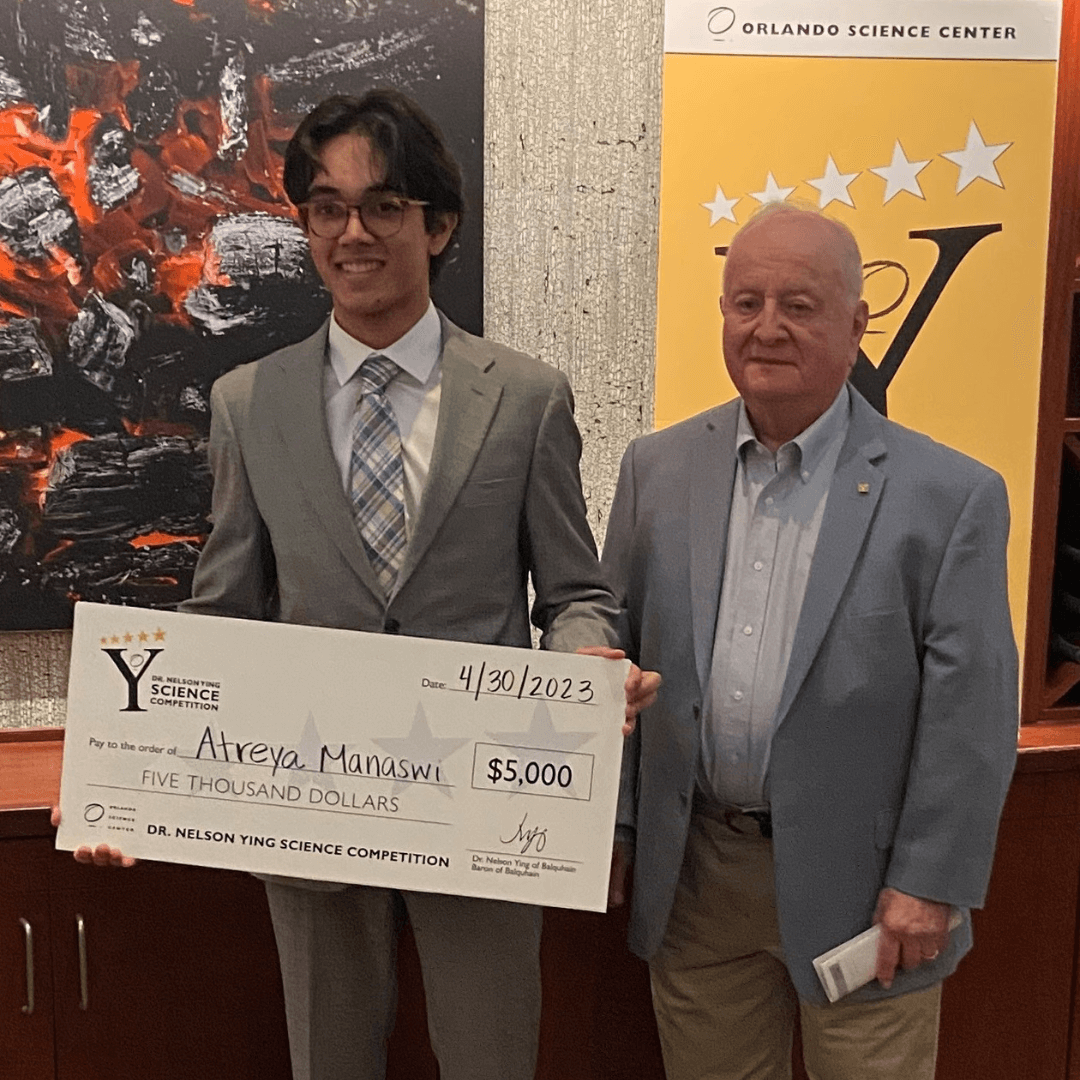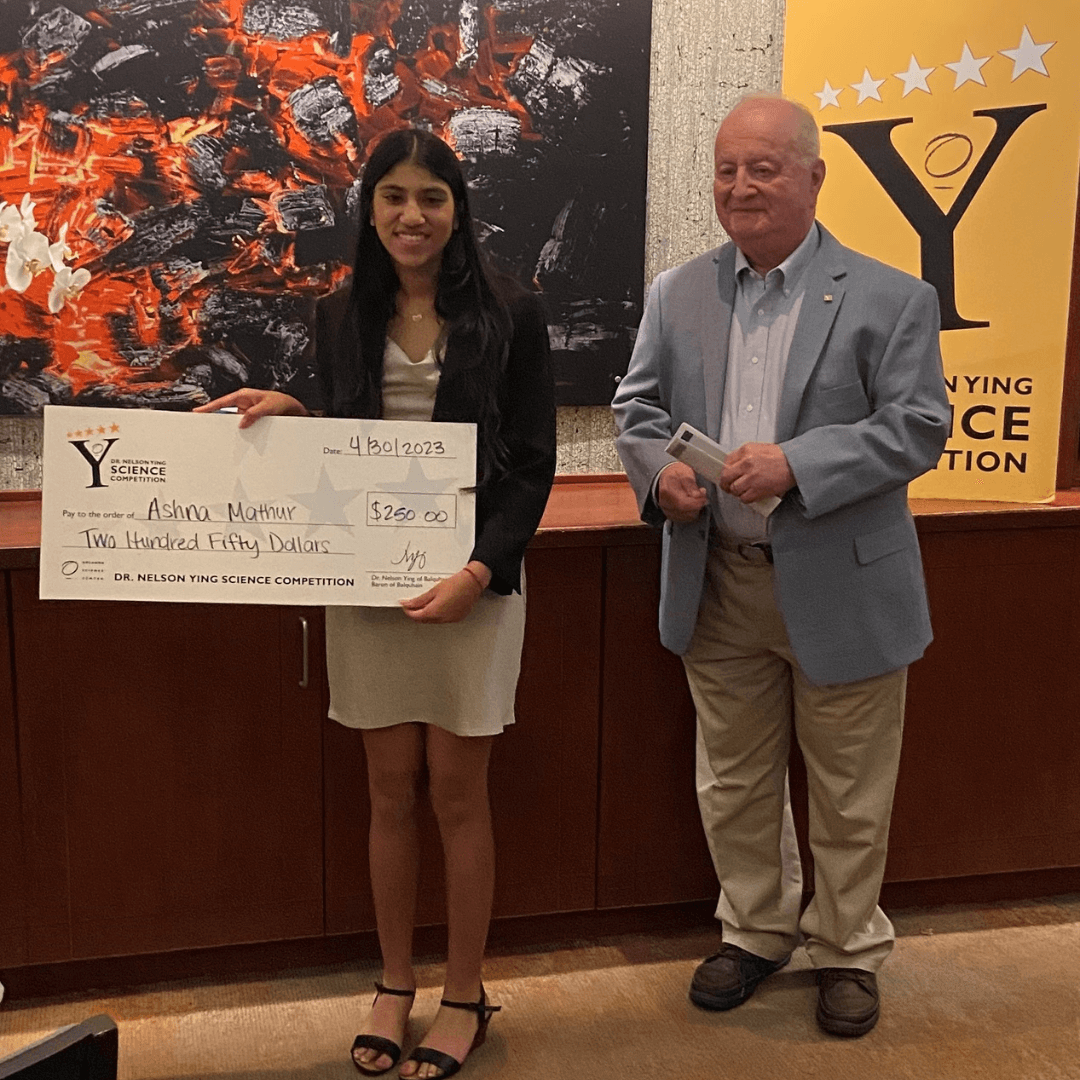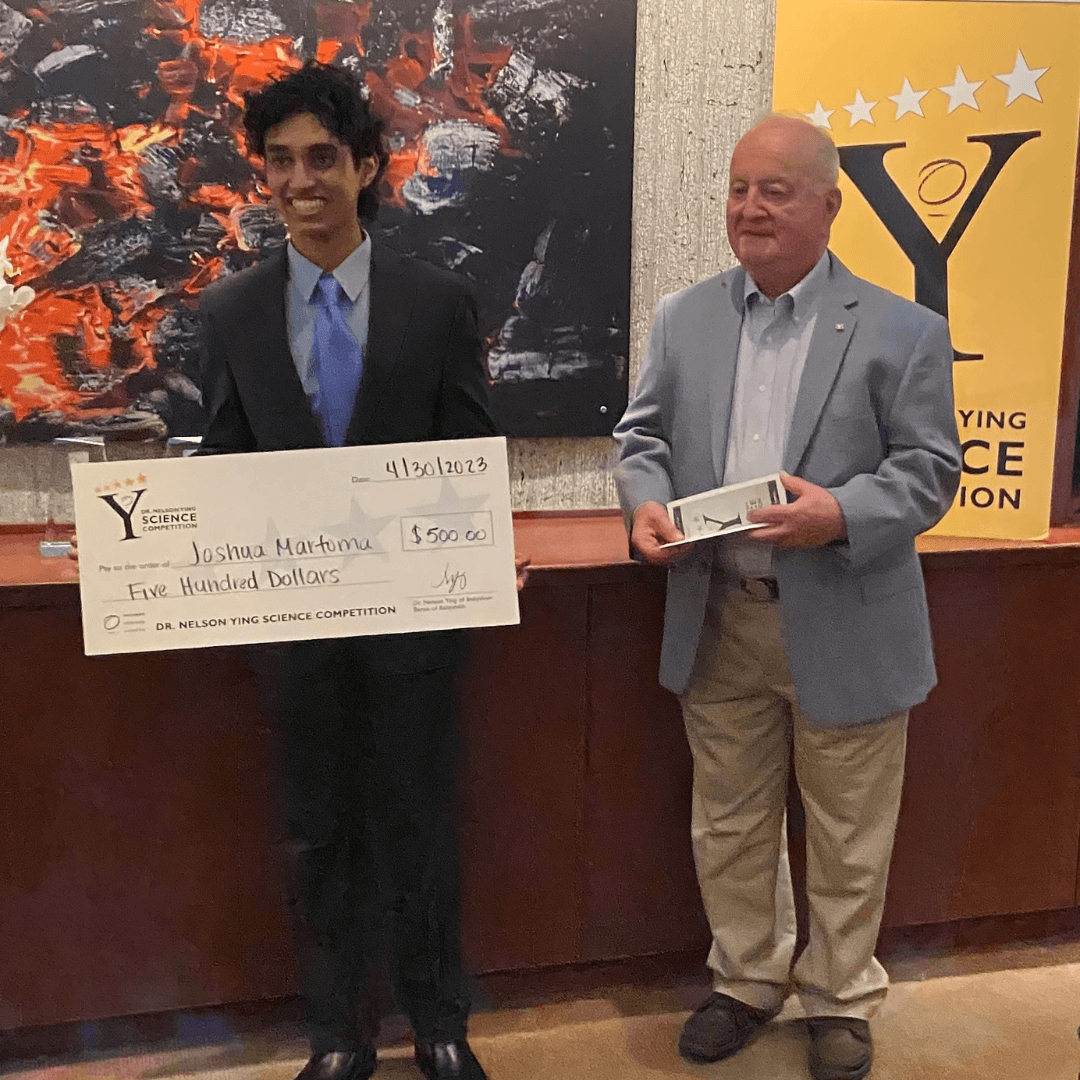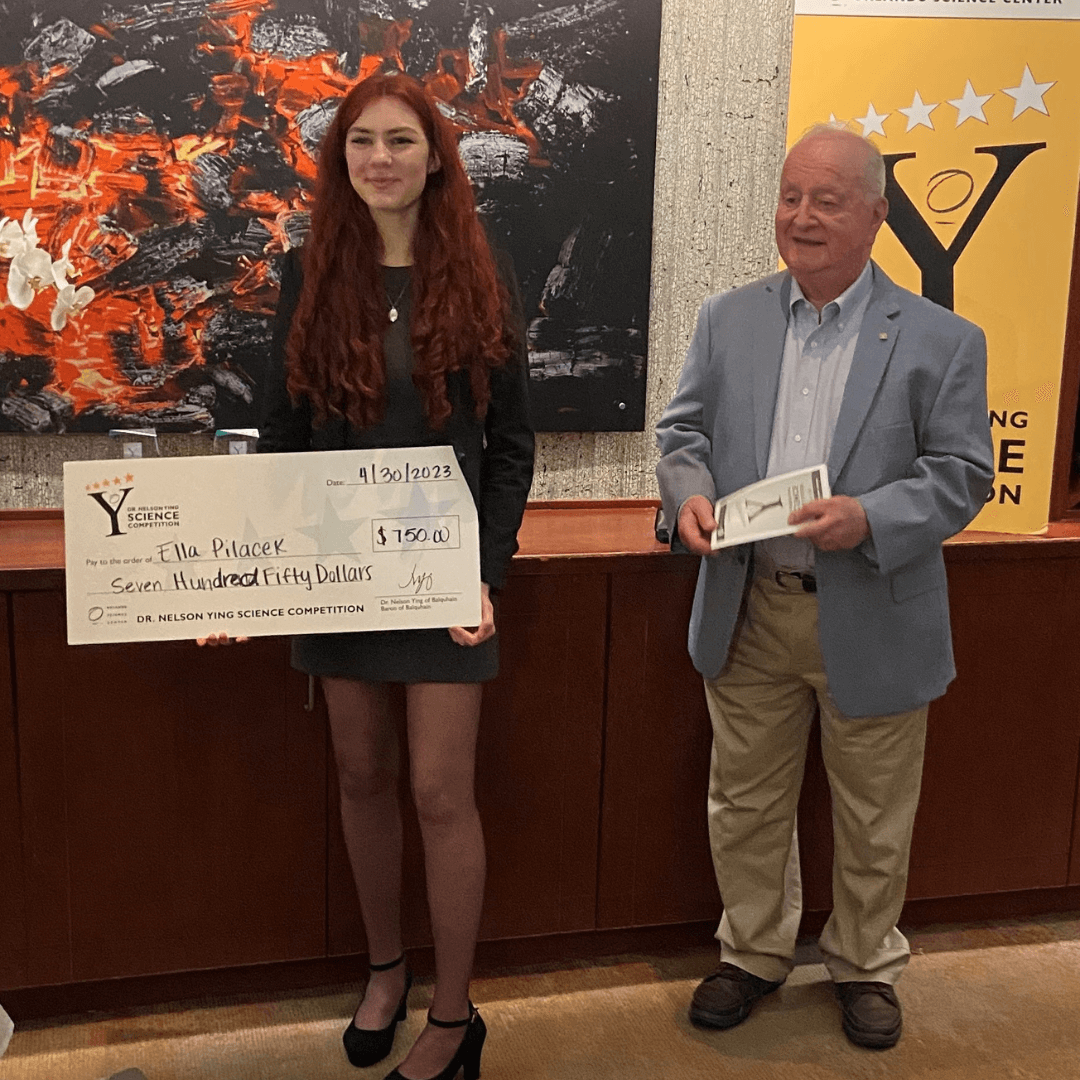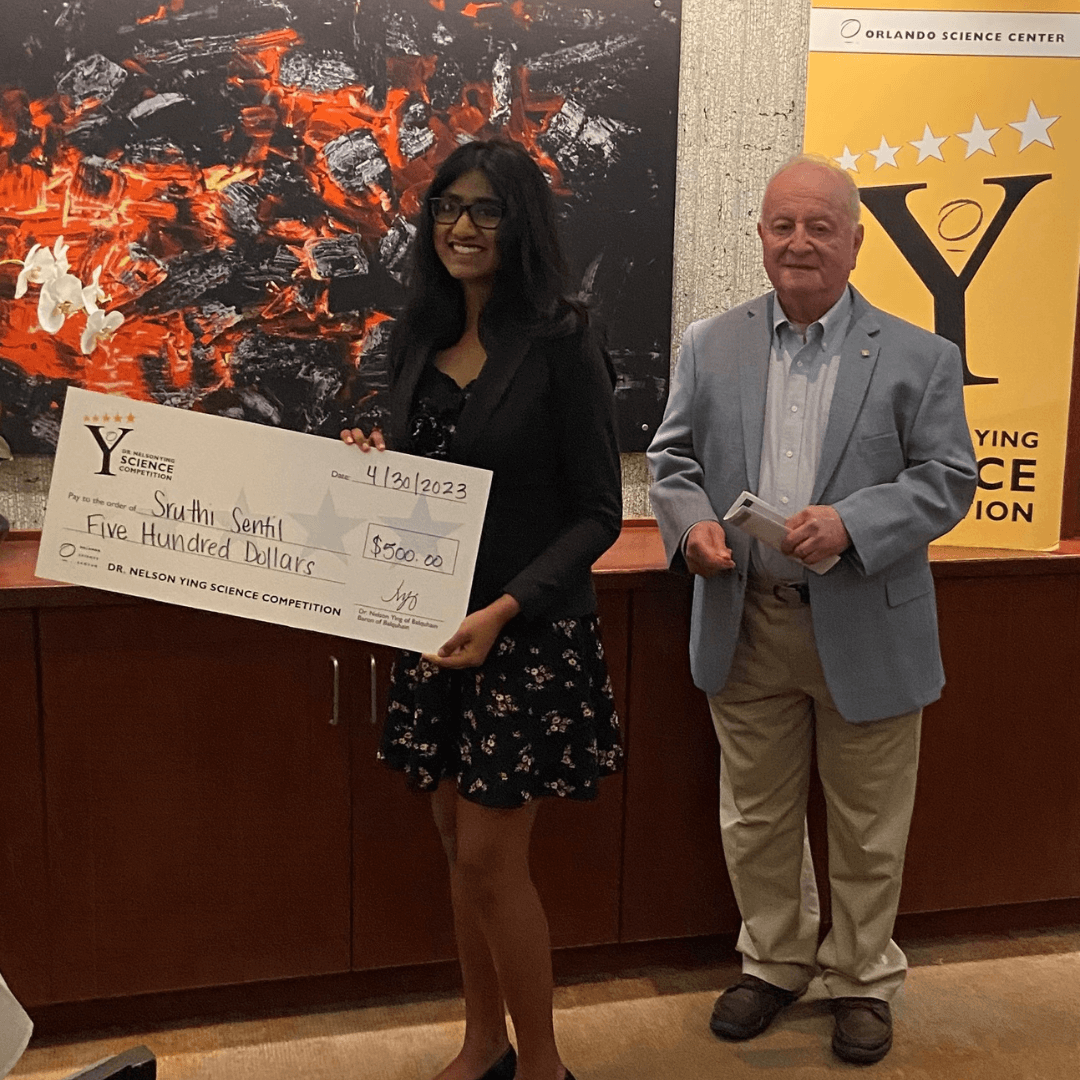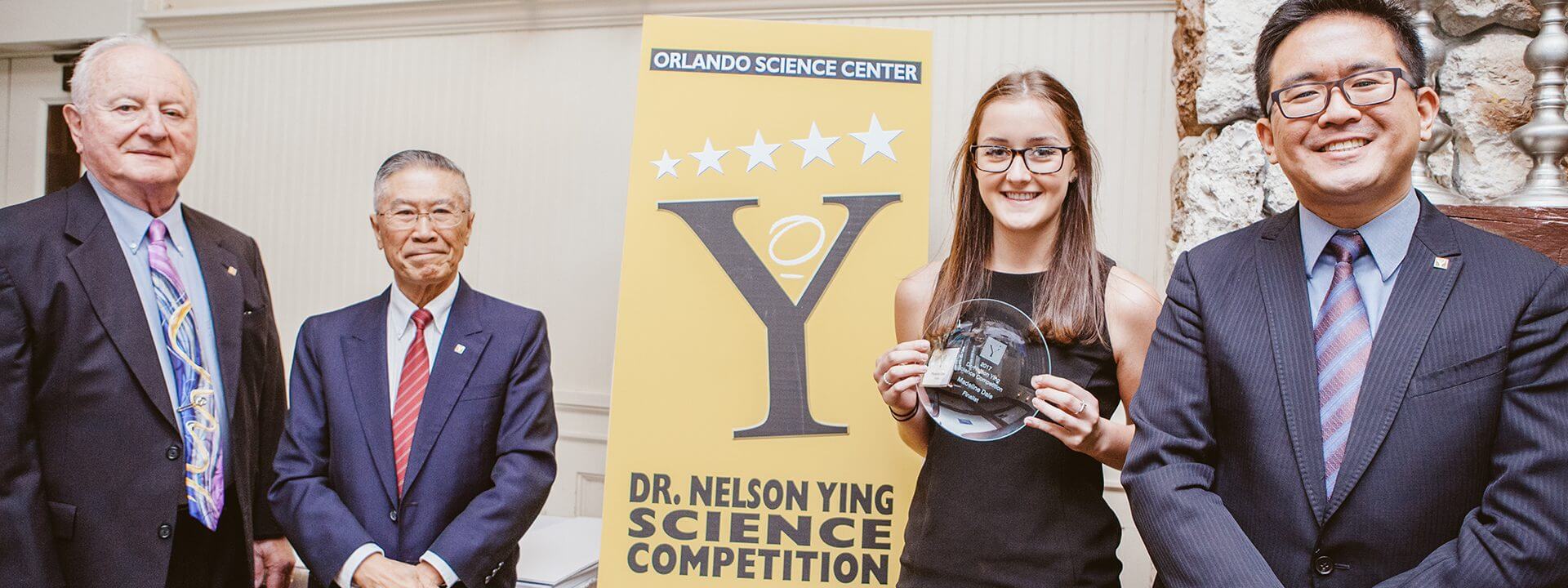Next Competition: April 26-28, 2024
Local scientist, entrepreneur and philanthropist Dr. Nelson Ying has partnered with Orlando Science Center since 1999 to celebrate local students’ exemplary achievements through the Dr. Nelson Ying Science Competition.
Students submit research papers to be reviewed by a distinguished panel of judges and can earn up to $5,000, plus additional awards for their schools and teachers.
This competition is open to individual students in Grades 9–12. Projects can be classified into a wide range of STEM topics, but they always have one thing in common: the goal to help humanity through scientific research.

For more information about our Science Competitions, please call our Reservations Department at 407.514.2112 or email competitions@osc.org.
Application Deadline:
March 8, 2024
2023 Dr. Nelson Ying Science Competition Finalists
1st Place Winner & Finalist - Atreya Manaswi, Orlando Science High School —Atreya’s winning project is part of his multi-year research effort to address the decline of the world’s honeybee population, which is responsible for pollinating 80% of the world’s food crops. Since 1947, honeybees have declined worldwide by 50% with two of the biggest causes being pests and chemicals. His organic solution, based on the chemical composition of beer, is just as effective as chemical pesticide, but it’s non-toxic and 80 times cheaper. Globally, it could save $1 billion dollars annually with no risk of contamination.
Ashna Mathur, Sophomore, Lake Highland Preparatory School, Orlando — Currently, surgeons use inert metals for bone implants following injury, which ultimately need to be removed because they can’t be absorbed by the body. To prevent these costly and time-consuming surgeries, Ashna developed implants with Magnesium, which is biodegradable. She mixed Magnesium with Scandium, Strontium and bio glass nanoparticles to enhance its mechanical properties and promote bone growth.
Joshua Martoma, Junior, Pine Crest School, Fort Lauderdale — The United States has the largest incarceration rate in the world with 68% of people in prison returning to prison. Joshua created a machine learning algorithm to identify the risk factors involved with paroled convicts to predict the likelihood of them returning to prison. The goal of his research is to increase the fairness, accuracy and transparency of existing tools to help prevent recidivism amongst this population.
Ella Pilacek, Junior, Oviedo High School, Oviedo — Many species of indigenous plants are endangered in Florida due to habitat fragmentation, which results in plants being separated from native pollinator species. Ella trained honeybees to pollinate endangered plant species through Pavlovian conditioning. She repeatedly fed bees a food solution while also feeding them the scent of the endangered plant. Honeybees would associate the scent with a good food source so they would pollinate endangered plants that they would have ignored otherwise.
